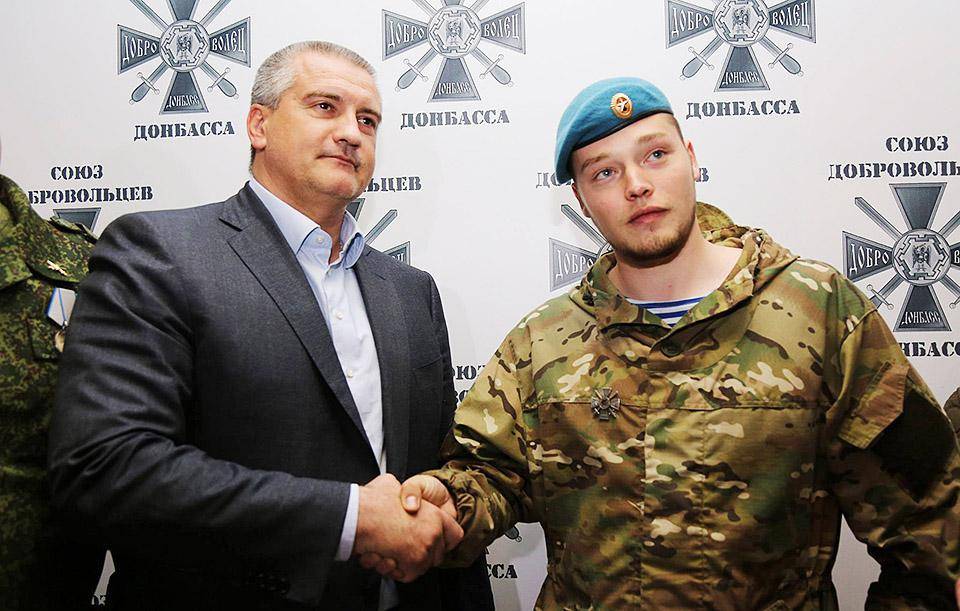Milchakov, commander of "Rusich" group fighting for Russia in Ukraine:
"I'm a Nazi, I'm a Nazi. I won't elaborate whether I'm a nationalist, a patriot or imperialist. I say directly: I'm a Nazi. I can raise my hand in Nazi salute"
(interview to Provsvirnin, Sputnik and Pogrom)
"I'm a Nazi, I'm a Nazi. I won't elaborate whether I'm a nationalist, a patriot or imperialist. I say directly: I'm a Nazi. I can raise my hand in Nazi salute"
(interview to Provsvirnin, Sputnik and Pogrom)
Milchakov, commander of "Rusich" group:
"When you are going to war, that's sexual desire, it's like wanting to fuck... When you are killing a piglet, you savour his wife becoming a widow, his family grieving , him coming back home in a coffin. You have erection, don't you?"
"When you are going to war, that's sexual desire, it's like wanting to fuck... When you are killing a piglet, you savour his wife becoming a widow, his family grieving , him coming back home in a coffin. You have erection, don't you?"
Milchakov, commander of "Rusich" is an interesting person. He used to be a fan of the football club Zenit under a nickname "Fritz". In 2011 he became famous after uploading a video with himself killing a puppy, cutting of its heads and then eating it (photos are googlable) 

In 2014 the war in Donbass started. So Milchakov rallied his comrades together and founded a group "Rusich" which departed to fight in Donbass on the Russian side 

In 2022, Rusich group also actively participated in the Special military operation. Here you can see a Russian propagandist boasting about Milchakov "de-Nazifying" Ukraine 

In his early days Milchakov was known as "Fritz". Now he uses "Serb" or "Topaz" nicknames. Here you can see Milchakov congratulating everyone with Hitler's birthday (April 20) in his Telegram channel - Говорит ТопаZ 

Milchakov's views have never been a problem. In 2016 Putin's deputy Vladislav Surkov organised a Council of Commanders of Donbass Volunteers. Milchakov participated of course. Here you see him shaking hands with Russia-appointed governor of Crimea Aksenov 

When you are hearing about the "de-Nazification" of Ukraine, keep in mind who is de-Nazifying it
Warning: next photo will be graphic

Warning: next photo will be graphic


Here you can see Milchakov in visible confusion after Ukrainians hijacked his Quadrocopter. He orders an immediate retreat as now Ukrainians may know where Rusich group stay and can shell them
https://twitter.com/wartranslated/status/1563629619047239680
You may have wondered where the initial videos with Milchakov declaring himself a Nazi and describing the erection he has when thinking about the grieving families are taken from. Well, from Yegor Prosvirnin (=Sputnik and Pogrom) YouTube channel of course 

Sputnik and Pogrom used to be by far the most influential Russian nationalist media. It had tons of high profile fans (@achubays for example) as it promoted the nationalist and imperialist agenda in a manner "sophisticated" enough so that higher classes would like it 

At this point, I'm gonna stop. I'll just ask readers to remember the keyword "Sputnik and Pogrom", because it gonna be relevant in the context of the next thread. The end 

• • •
Missing some Tweet in this thread? You can try to
force a refresh






